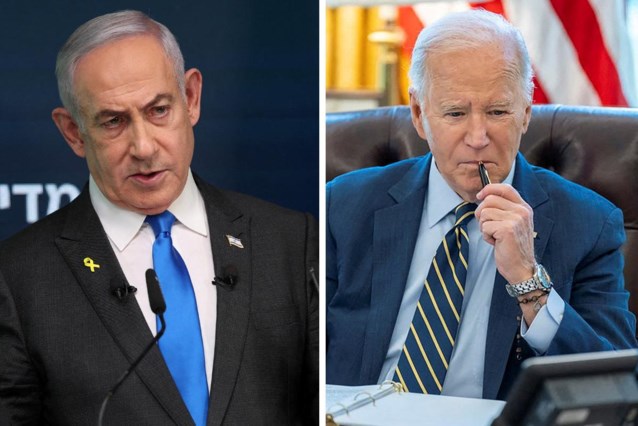Israeli Defense Minister Yoav Gallant was due to meet his American counterpart Lloyd Austin in the US this week. But just hours before his departure, that planned visit was abruptly postponed. Netanyahu is said to have expressed objections and preferred to speak to Biden first. That’s why the two telephoned each other on Wednesday.
The conversation focused mainly on Israel’s response to the Iranian attack, he said Channel 12. According to an Israeli official, the conversation took place “in a positive atmosphere.” The White House describes the 30-minute telephone conversation as “direct and productive.”
There is no official record of the telephone conversation yet. Although Biden probably tried to convince Israel not to attack Iranian nuclear or oil facilities. The US and European and Arab states fear that such an attack could spark a conflict throughout the Middle East and drive up energy prices.
Just over a week ago, Iran fired about 200 rockets into Israel in response to continued attacks on Hezbollah and the start of a ground offensive in Lebanon. Netanyahu said Iran had made “a big mistake” by firing on Israel. The attack caused little damage – one fatality occurred in the West Bank – but several air bases were hit and millions of Israelis were forced to take shelter.
Tensions
Relations between Washington and Tel Aviv are currently tense, mainly due to the behavior of the Israeli military, which has drawn criticism in parts of the US. Opponents of American arms shipments to Israel fear they will further inflame tensions and make peaceful solutions more difficult. The US government says it is working to de-escalate the situation, but at the same time repeatedly emphasizes Israel’s right to defend itself.
The debate is also gaining importance in the run-up to the presidential elections. For some voters, the candidates’ position on this issue plays a central role.
No ceasefire in Lebanon
Meanwhile, Israel is stepping up its offensive in Lebanon against Hezbollah. The army has announced it is sending a fourth division to the south of the country – a division usually contains 5,000 to 10,000 troops – and continues to bomb the radical Lebanese movement. The Israeli army said on Wednesday that 185 military targets had been attacked in the past day.
Netanyahu called on the Lebanese people to “take back” their country from Hezbollah, which is also a political party with significant support among Shia Muslims. “You have a chance to save Lebanon before it falls into the abyss of a long war that will lead to destruction and suffering as we see in Gaza,” the Israeli prime minister said.
Naim Qasem, deputy leader of Hezbollah, said on Tuesday that the group supports efforts for a ceasefire with Israel, without mentioning a long-term condition for a ceasefire in Gaza. Still, Israeli demands for Hezbollah’s withdrawal to the Litani River, which is about 30 kilometers from the border, are likely to be unacceptable.
Israel’s attacks have destroyed much of southern Lebanon and parts of the capital Beirut. More than 1,500 people, including many civilians and children, have been killed in attacks in recent weeks, according to Lebanese officials. According to Netanyahu, the attacks are necessary because diplomatic efforts have failed to prevent Hezbollah from attacking Israel.
